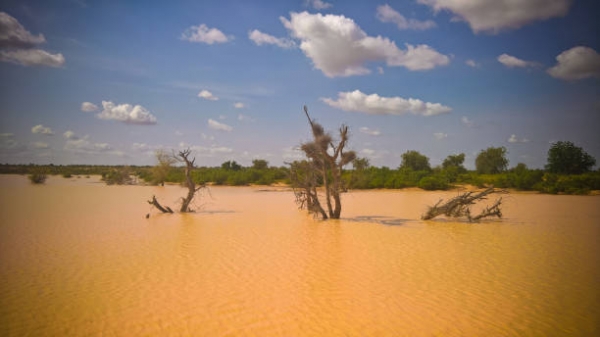On 23 February 2021, the International Committee of the Red Cross (ICRC) held a discussion in collaboration with Switzerland, Germany, and Niger about the intensifying effects of armed conflict, combined with climate risks and environmental degradation, on civilian populations. The discussion was led by Laetitia Courtois, a Permanent Observer to the United Nations & Head of Delegation for the ICRC in New York City.
Many of the countries in which ICRC conducts humanitarian operations have been experiencing armed conflict for decades. During recent years, the organization has identified the changing climate and environment as a significant reason for need. Civilian populations affected by conflict are “disproportionately impacted by climate risks and environmental degradation, yet they lack the support to help them adapt.” This is attributed to the low-quality institutions and infrastructure, or complete lack of them in some countries.
Armed conflict invokes similar amounts of damage on the environment as it does on civilian populations directly. Attacks can result in the contamination of soil, water, and land, or distribute pollutants into the atmosphere. “Environmental degradation threatens the health and survival of conflict-affected populations and can result in large-scale population displacement, which can in turn affect the environment,” Courtois stated. For instance, rising violence and displacement has been amplified by the scarcity of resources in the Sahel and the Lake Chad Basin. Livelihoods have been disrupted by “irregular rainfall patterns including unpredictable droughts and damaging floods.” Government institutions and traditional conflict resolution mechanisms have failed to ameliorate the situation.
The discussion concluded by stating that greater regard for international humanitarian law (IHL) can protect the environment and minimize the damage that conflict-affected communities are vulnerable to. Furthermore, environmental degradation as a result of armed conflict can be prevented if states maintain and/or increase compliance with IHL.
To know more, please read:







